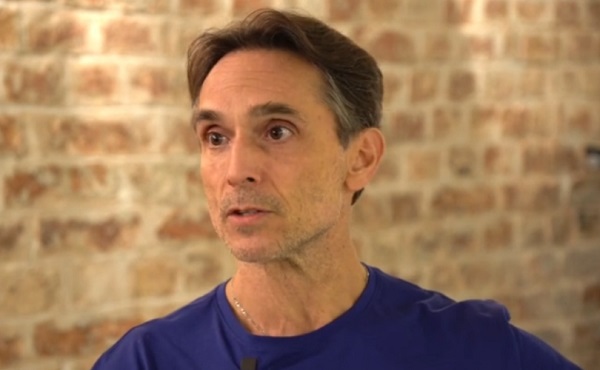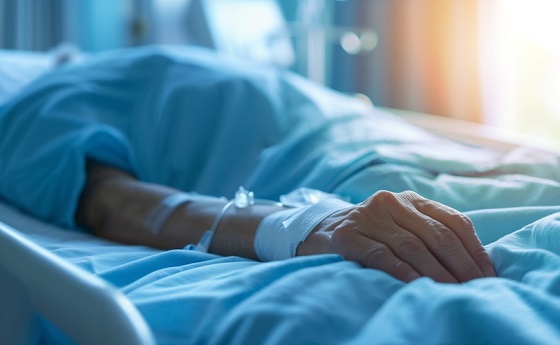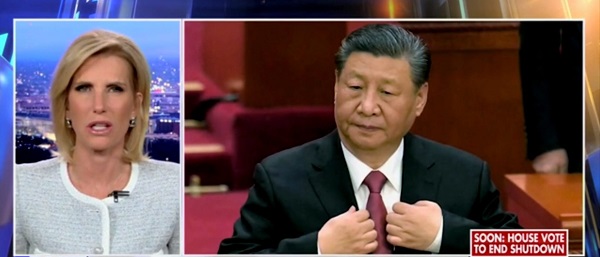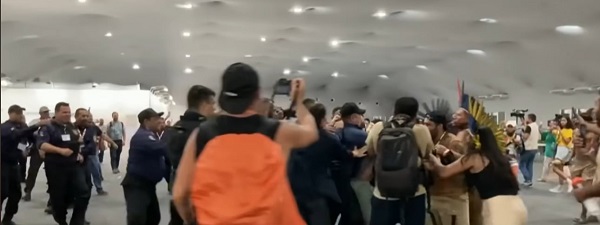COVID-19
Dr. Trozzi appeals revocation of his medical license in ‘existential moment’ for Ontario courts

Dr. Mark Trozzi
From LifeSiteNews
Tuesday, outspoken COVID science critic Dr. Mark Trozzi will appeal a decision to take away his medical license. Due to a new legal standard, a successful outcome may positively impact Canada ‘in all domains of government regulation.’
Medical freedom champion Dr. Mark Trozzi will present his legal case on Tuesday when he appeals the stripping of his medical license in January by the College of Physicians and Surgeons of Ontario (CPSO).
The case will be heard by the Ontario Divisional Court (ODC) and, according to attorney Michael Alexander, a successful result would have far-reaching legal implications impacting freedom of expression rights across “all domains of government regulation,” including all health colleges.
Appearing in a late September interview with Canadian politician Derek Sloan, Alexander explained the history of the case leading up to the revoking of Trozzi’s license on January 25. In their view, “the college was primarily concerned … that Mark had been making statements about COVID-19 science and public policy that amounted to ‘misinformation’ and he was misleading the public and in doing so causing harm.”
It was also relevant that Trozzi was not even in practice at this time but had taken a sabbatical to study these issues more carefully and start a daily newsletter regarding his research.
The concern of CPSO “was the substance of his views,” the attorney assessed, “so they wanted to censor him in some way” and “eventually took him to a discipline hearing where he was found to be unprofessional, incompetent, and in violation of the standard of practice in the profession, primarily because he just presented an alternative point of view.”
READ: Dr. Trozzi stripped of medical license over COVID stance, plans to appeal
Ironically, Trozzi was not able to be present for the interview himself because he was traveling in Japan, with an invitation to speak before its parliament. He had already addressed the Romanian parliament on issues related to the COVID-19 response.
While the highly regarded former emergency room specialist “is a persona non grata in Ontario,” Dr. Trozzi’s attorney observed, “he’s in high demand around the world as someone who is providing important insights into the whole COVID era, COVID science, COVID public policy, and his criticisms are taken very seriously.”
“We have to ask ourselves what the authorities in Ontario are doing when in other parts of the world serious people are taking Dr. Trozzi’s criticisms very seriously,” Alexander proposed.
Trozzi case could impact ‘the country in all domains of government regulation’
For more than three decades, the Ontario Divisional Court has been legally directed to judge such cases only according to a low-threshold standard called “reasonableness” that Alexander describes as the court basically deferring to the judgment of such regulatory tribunals as CPSO with regard to facts, the law, and “particularly on the interpretation of the law that the tribunal adopts.”
What makes this case different is that since Trozzi has a “statute-based right to appeal” and thus a 2019 Supreme Court decision now requires the ODC to adopt a higher standard, referred to as “correctness,” in examining the CPSO decision.
Therefore, according to this new standard, “you must get all findings of fact correct, you must get every interpretation of your statute correct, you must interpret all case law correctly,” Alexander explained.
“So, the CPSO has never had to face this before, and this (case) is the first major fundamental challenge to a regulatory body on this standard of correctness in Ontario,” he continued. Thus, this case is “extremely important. If we were to win, it would affect the whole regulatory framework of the province in a positive way.”
“So these same judges, who have been cutting a lot of slack to the College of Physicians in particular, are now going to be facing similar issues that they have faced before but on this new standard of correctness,” the attorney said. “So they are going to have to adopt a completely different mindset in assessing the case.”
Therefore, “I guess you could say (this is) an existential moment for the judiciary in Ontario,” Alexander proposed. “I mean will the Divisional Court step up to the plate and fully apply the standard of correctness and have the courage to do it?”
According to Alexander, a successful outcome in this case “would have a ripple effect not just in Ontario for the 22 health colleges here but for the health colleges all across the country,” forcing them to reconsider their policies in this regard.
And given the case regards the fundamental freedom of expression, a successful outcome on these arguments “would have an impact across the country in all domains of government regulation.”
“So this is not a case that’s just about Mark,” the attorney clarified. “We are trying to change the way this country is governed, and the college’s case has given us that opportunity.”
In 2020 during the “pandemic,” Trozzi, an ER veteran of 25 years, noticed that the mainstream narrative surrounding the public health “emergency” was deeply flawed. While media reported overflowing emergency rooms, Trozzi’s hospital remained relatively empty. This inspired him to research the science facts of COVID.
In the interest of protecting not only his own patients but people everywhere, Dr. Trozzi promoted alternative COVID-19 treatments and publicly explained why the COVID shot is “not a vaccine.”
In retaliation, Dr. Trozzi was barred from issuing medical exemptions for COVID-19 shots, masking requirements and testing in 2021. He was not alone: Ontario’s Dr. Rochagne Kilian was also similarly barred.
At the time, CPSO said the interim orders were given in accordance with the Regulated Health Professions Act, which allow restrictions on a member’s license if a regulator believes a certain practice “exposes or is likely to expose patients to harm or injury.”
The CPSO has cracked down on numerous physicians who failed to comply with standard protocol during the COVID outbreak. It has done this so assiduously that last year Dr. Robert Malone spoke out against what he described as the “re-education” of dissident Canadian doctors.
The CPSO has thus far initiated legal action against Trozzi and at least five other doctors who are committed to their Hippocratic Oath responsibilities related to COVID: Mary O’Connor, Kilian, Celeste Jean Thirlwell, Patrick Phillips, and Crystal Luchkiw.
Alexander also made clear that while the CPSO has the typical governmental “blank check” of “unlimited resources,” including “around 10 lawyers on staff” and “access to outside council,” he is in need to hire “clerks to do special kinds of filing” and is seeking free-will donations.
Having donated “hundreds of thousands of dollars of billable time” into this case, Alexander has no regrets, stating that “it’s too important to the country not to litigate and we are the ones who pioneered this approach, and so it’s us or nobody.”
To assist Dr. Trozzi in winning his precedent-setting case, please donate here.
COVID-19
Major new studies link COVID shots to kidney disease, respiratory problems

From LifeSiteNews
Receiving four or more COVID shots was associated with 559% higher likelihood of cold in children, a new study found, and another one linked the shots to higher risk of renal dysfunction.
Two major new studies have been published sounding the alarm about the COVID-19 shots potentially carrying risks of not only respiratory diseases but even kidney injury.
The Washington Stand first drew attention to the studies, published in the International Journal of Infectious Diseases (IJID) and International Journal of Medical Science (IJMS), respectively.
The first examined insurance claims and vaccination records for the entire population of South Korea, filtering out cases of infection prior to the start of the outbreak for a pool of more than 39 million people. It reported that the COVID shots correlated with mixed impacts on other respiratory conditions. A “temporary decline followed by a resurgence of URI [upper respiratory infections] and common cold was observed during and after the COVID-19 pandemic,” it concluded. “In the Post-pandemic period (January 2023–September 2024), the risk of URI and common cold increased with higher COVID-19 vaccine doses,” it noted.
Children in particular, who are known to face the lowest risk from COVID itself, had dramatically higher odds of adverse events the more shots they took. Receiving four or more was associated with 559% higher likelihood of cold, 91% higher likelihood of pneumonia, 83% higher likelihood of URI, and 35% higher likelihood of tuberculosis.
The second study examined records of 2.9 million American adults, half of whom received at least one COVID shot and half of whom did not.
“COVID-19 vaccination was associated with a higher risk of subsequent renal dysfunction, including AKI [acute kidney injury] and dialysis treatment,” it found, citing 15,809 cases versus 11,081. “The cumulative incidence of renal dysfunction was significantly higher in vaccinated than in unvaccinated patients […] At the one-year follow-up, the number of deaths among vaccinated individuals was 7,693, while the number of deaths among unvaccinated individuals was 7,364.” Notably, the study did not find a difference in the “type of COVID-19 vaccine administered.”
The researchers note that this is not simply a matter of correlation, but that a causal mechanism for such results has already been indicated.
“Prior studies have indicated that COVID-19 vaccines can damage several tissues,” they explain.
“The main pathophysiological mechanism of COVID-19 vaccine-related complications involve vascular disruption. COVID-19 vaccination can induce inflammation through interleukins and the nod-like receptor family pyrin domain-containing 3, an inflammatory biomarker. In another study, thrombosis episodes were observed in patients who received different COVID-19 vaccines. Additionally, mRNA COVID-19 vaccines have been associated with the development of myocarditis and related complications […] The development of renal dysfunction can be affected by several biochemical factors [26]. In turn, AKI can increase systemic inflammation and impair the vasculature and red blood cell aggregation. Given that the mechanism underlying COVID-19 vaccine-related complications corresponds to the pathophysiology of kidney disease, we hypothesized that COVID-19 vaccination may cause renal dysfunction, which was supported by the results of this study.”
Launched in the final year of President Donald Trump’s first term in response to COVID-19, Operation Warp Speed (OWS) had the COVID shots ready for use in a fraction of the time any previous vaccine had ever been developed and tested. As LifeSiteNews has extensively covered, a body of evidence steadily accumulated over the following years that they failed to prevent transmission and, more importantly, carried severe risks of their own. COVID was a sticking point for many in Trump’s base, yet he doggedly refused to disavow OWS.
Since leaving office, Trump repeatedly promoted the shots as “one of the greatest achievements of mankind.” The negative reception to such comments got him to drop the subject for a while, but in July 2022, he complained that “we did so much in terms of therapeutics and a word that I’m not allowed to mention. But I’m still proud of that word, because we did that in nine months, and it was supposed to take five years to 12 years. Nobody else could have done it. But I’m not mentioning it in front of my people.”
So far, Trump’s second administration has rolled back several recommendations for the shots but not yet pulled them from the market, despite hiring several vocal critics of the COVID establishment and putting the Department of Health & Human Services under the leadership of America’s most prominent anti-vaccine activist, Robert F. Kennedy Jr. Most recently, the administration has settled on leaving the current vaccines optional but not supporting work to develop successors.
In early August, Kennedy announced the government would be “winding down” almost $500 million worth of mRNA vaccine projects and rejecting future exploration of the technology in favor of more conventional vaccines. Last week, HHS revoked emergency use authorizations (EUA) for the COVID shots, which were used to justify the long-since-rescinded mandates and sidestep other procedural hurdles, and in its place issued “marketing authorization” for those who meet a minimum risk threshold for the following mRNA vaccines: Moderna (6+ months), Pfizer (5+), and Novavax (12+).
“These vaccines are available for all patients who choose them after consulting with their doctors,” Kennedy said, making good on his pledge to “end COVID vaccine mandates, keep vaccines available to people who want them, especially the vulnerable, demand placebo-controlled trials from companies,” and “end the emergency.”
COVID-19
Spy Agencies Cozied Up To Wuhan Virologist Before Lying About Pandemic


From the Daily Caller News Foundation
By Emily Kopp
The Office of the Director of National Intelligence’s (ODNI) hub for foreign biological threats dismissed the intelligence pointing to a lab accident in Wuhan as “misinformation” in January 2021, two former government sources who requested anonymity to discuss sensitive internal meetings told the Daily Caller News Foundation. New documents show that intelligence risked implicating ODNI’s own bioengineering advisor — University of North Carolina professor Ralph Baric.
Baric, who engineered novel coronaviruses with the Wuhan Institute of Virology (WIV), advised ODNI four times a year on biological threats, according to documents released Oct. 30 by Kentucky Sen. Rand Paul.
Dear Readers:
As a nonprofit, we are dependent on the generosity of our readers. \
Please consider making a small donation of any amount here.
Thank you!
Baric did not respond to the DCNF’s requests for comment.
The professor’s ties to American intelligence may run even deeper, the documents reveal, as ODNI facilitated a meeting between the CIA and Baric about a project on coronaviruses in September 2015.
The email exchange with the subject line “Request for Your Expertise” shows an unnamed government official with a CIA-affiliated email address pitching a “possible project” to Baric relating to “[c]oronavirus evolution and possible natural human adaptation.”
The new documents shed a bit of light on a question members of Congress have posed for years: Whether our own intelligence agencies knew more about the likelihood of a lab origin of COVID than they told the public.
“Director Ratcliffe has been on the forefront of this issue since the start of the COVID-19 pandemic and has been committed to transparency and accountability on this issue,” a CIA spokesperson said in a statement. “In January – as one of the Director’s first actions at Langley – CIA made public its assessment that a research-related origin of the COVID-19 pandemic is more likely than a natural origin. CIA will continue to evaluate any available credible new intelligence reporting as appropriate.”
Paul is seeking more documents from ODNI on potential ties between U.S. intelligence and the research in Wuhan as part of an ongoing investigation by the Senate Committee on Homeland Security and Governmental Affairs and has promised public hearings in the coming months.
Director of National Intelligence (DNI) Tulsi Gabbard disbanded the ODNI biological threats office earlier this year following questions from the DCNF about its suppression of COVID origins intelligence in August. Gabbard and a dedicated working group have also been quietly investigating the origins of COVID.
Protecting Their Own

Baric gave a presentation to the ODNI in January 2020 showing that he advised American intelligence that COVID may have emerged from a lab, the documents also indicate. Baric shared that the WIV had sequenced thousands of SARS-like coronaviruses, including strains capable of epidemics, the slides show.

Baric noted that the Wuhan lab does this work under low biosafety levels despite the ability of some of these viruses to infect and grow in human lung cells.
What Baric omitted: He had submitted a grant application in 2018 with intentions to conduct research to make coronaviruses with the same rare features seen in COVID while concealing the Wuhan lab’s low biosafety level, jotting in the margins of a draft of the grant application that Americans would “freak out” if they knew about the shoddy standards.
One year after Baric’s presentation, ODNI had hardened against the lab leak hypothesis.
When State Department officials pushed to declassify certain intelligence related to a plausible lab leak in January 2021, the ODNI expressed concerns that it would “call out actions that we ourselves are doing.”
Former ODNI National Counterproliferation and Biosecurity Center (NCBC) Director Kathryn Brinsfield, a medical doctor, also dismissed a January 2021 presentation by government officials about a plausible lab origin of COVID as “misinformation,” two sources told the DCNF. Her top aide Zach Bernstein, who possesses a master’s degree in security studies but no scientific credentials, also dismissed the presentation, according to three sources.
Gabbard disbanded NCBC in August following questions from the DCNF about its role in suppressing COVID origins intelligence.
But in the years preceding Gabbard’s takeover of the intelligence community’s central office, the ODNI’s public reports omitted any analysis of COVID’s viral genome. One intelligence agency filed a formal complaint about this glaring omission, the DCNF reported.
Scientists often received fierce pushback from former National Intelligence Council official Adrienne Keen, who helped steward former President Joe Biden’s 90-day review into COVID’s origins, an official told the DCNF. Paul’s request for records from ODNI includes a request for some of Keen’s communications.
Brinsfield and Keen did not respond to requests for comment.
Unanswered Questions
Despite the new disclosures, the precise nature of the CIA’s interest in Baric’s coronavirus work remains unknown. The documents do not include any further details about the work that the CIA and Baric may or may not have undertaken.
The U.S. Agency for International Development (USAID) funded the discovery of novel coronaviruses and shipped the samples to Wuhan through a 2009-2020 program called PREDICT, the DCNF reported in July. USAID sometimes acted as a CIA front before Trump dismantled it earlier this year — but no evidence exists that the CIA directed PREDICT.
An unnamed FBI special agent was in communication with Baric about responding to public requests for his research and emails with the Wuhan lab through the North Carolina Freedom of Information Act, according to a 2024 congressional letter, but details about the contact between the FBI and Baric also remain uncertain.
The CIA was slow to acknowledge that a lab was the pandemic’s most likely source, an assessment that the CIA made public more than five years after the pandemic emerged and well after the FBI and the Department of Energy.
In early 2020, when Trump’s Deputy National Security Advisor Matt Pottinger tasked CIA analysts to dig into the matter, they came up empty, according to a New York Times report. Instead, anonymous sources smeared Pottinger as having a “conspiratorial view” of the Chinese Communist Party.
Trump’s current CIA Director John Ratcliffe, who served as the DNI from May 2020 to January 2021, revealed in a 2023 Wall Street Journal op-ed that he had pushed for the declassification of COVID origins intelligence as the DNI but that he “faced constant opposition, particularly from Langley.”
-

 MAiD2 days ago
MAiD2 days agoQuebec has the highest euthanasia rate in the world at 7.4% of total deaths
-

 Alberta1 day ago
Alberta1 day agoHow economic corridors could shape a stronger Canadian future
-

 Frontier Centre for Public Policy17 hours ago
Frontier Centre for Public Policy17 hours agoRichmond Mayor Warns Property Owners That The Cowichan Case Puts Their Titles At Risk
-

 Alberta1 day ago
Alberta1 day agoWhen Teachers Say Your Child Has Nowhere Else to Go
-

 Daily Caller1 day ago
Daily Caller1 day agoLaura Ingraham’s Viral Clash With Trump Prompts Her To Tell Real Reasons China Sends Students To US
-

 Daily Caller1 day ago
Daily Caller1 day agoProtesters Storm Elite Climate Summit In Chaotic Scene
-

 Automotive2 days ago
Automotive2 days agoThe high price of green virtue
-

 Business17 hours ago
Business17 hours agoSluggish homebuilding will have far-reaching effects on Canada’s economy




